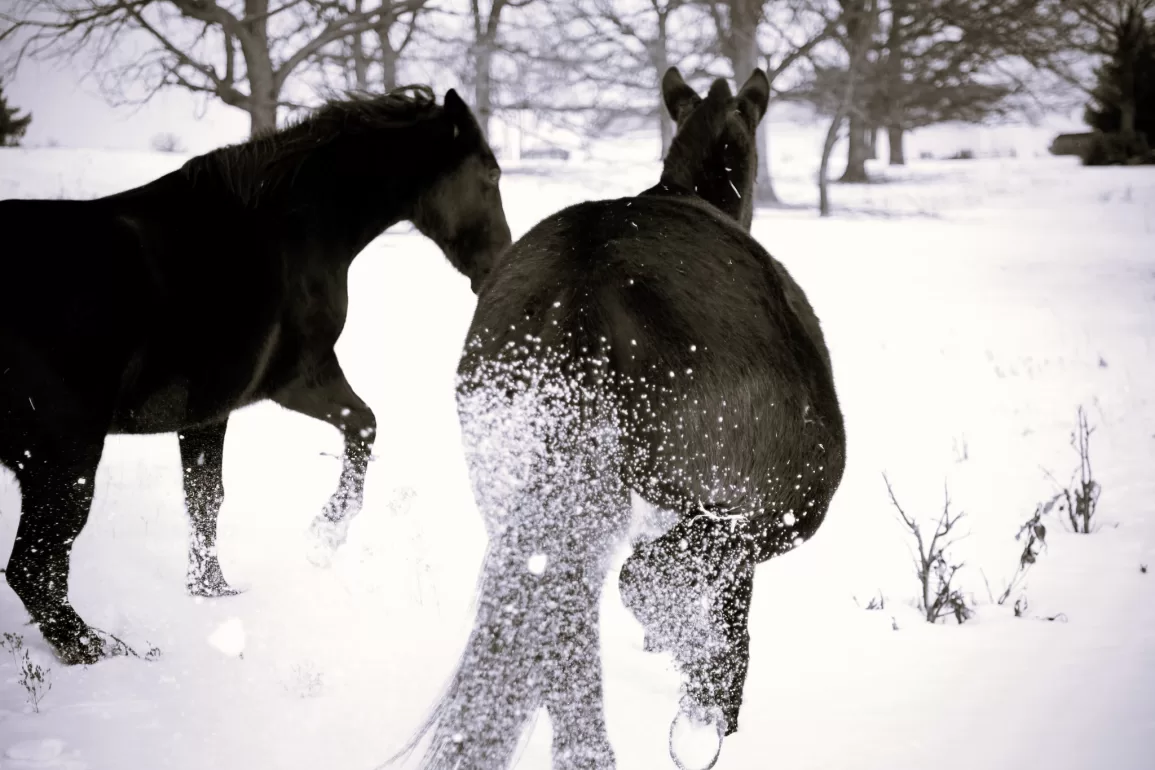Still Falling Snow The woods are mine now and they fill up with snow more often than I’d like. The nearest farmhouse fallen into itself, helped these last few years by a seasonal crush of snow turned to ice deep on the roof, breaking ridge-pole and rafters hand-hewn almost two centuries ago. Most nights, my pastured horses return from the far fields before I have to call them to the barn. I don’t know when they sleep because they always...

????????????????
